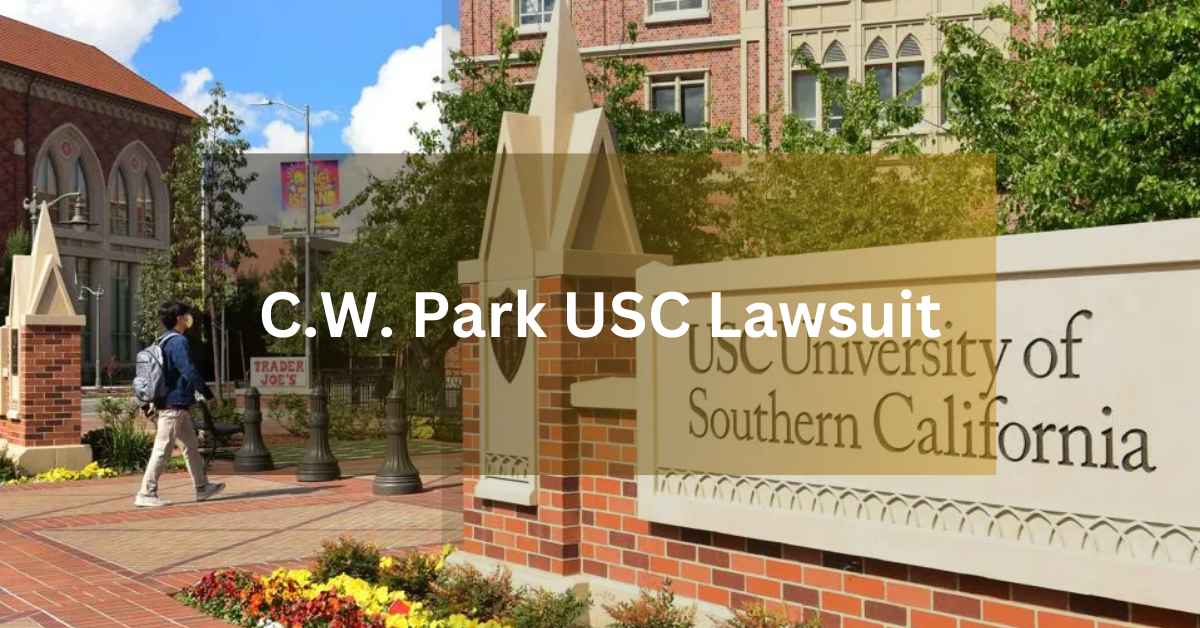In recent years, the spotlight on sexual harassment has grown brighter in academic and workplace environments. With the rise of the #MeToo movement and increased awareness of such issues, the C.W.
Park USC lawsuit emerges as a poignant example. This comprehensive article aims to unravel the intricacies of the lawsuit, delving into its implications and shedding light on the broader context of the fight against sexual harassment.
Table of Contents
What is Meet Dr. C.W. Park?
Dr. C.W. Park, a former assistant professor at the USC Marshall School of Business, takes center stage in this legal battle. Holding a Ph.D. in Marketing from the University of Florida, Dr. Park is no stranger to the academic limelight.
Also Read: The Flower Of Veneration Chapter 1
His significant contributions to the field of marketing and consumer behavior have earned him a distinguished reputation in academia. However, these accomplishments now cast a shadow over the allegations against him, making this lawsuit all the more significant.
The Disturbing Allegations: Sexual Harassment and Assault
At the heart of the C.W. Park USC lawsuit are deeply unsettling allegations of sexual harassment and assault. The plaintiff, whose identity remains confidential to protect her privacy, has come forward with claims of enduring these violations over a three-year period.
Dr. Park, who shares Korean heritage with the plaintiff, faces allegations of using his position of authority to manipulate and sexually harass her. The result is a hostile and emotionally distressing work environment that leaves a lasting impact on the victim.
An Alarming Pattern: Multiple Victims Emerge
One of the most alarming aspects of this case is that it’s not an isolated incident. The lawsuit sheds light on a pattern of abuse. Three other Korean-American female students have also suffered from similar forms of sexual violence, allegedly at the hands of Dr. Park.
Also Read: Xm9viesforyou – Your Gateway to Cinematic Wonders In 2023
This pattern indicates systemic issues that need addressing within the academic world and raises questions about whether the institution was aware of these patterns and if there were any prior complaints.
USC’s Response: Defending the Institution
In response to the lawsuit, the University of Southern California has chosen to mount a vigorous defense. USC contends that the allegations lack merit, and the actions taken were standard employment decisions.
This legal dispute highlights the complexities of cases related to employment, where different parties involved often have starkly contrasting interpretations of events.
Wider Implications: A Call to Action
The C.W. Park USC lawsuit has broader implications that extend well beyond the courtroom. It has profound implications for addressing sexual harassment:
Also Read: Cevıırı – History, Origins & Authentic In 2023
Raising Awareness and Encouraging Reporting
This lawsuit has cast a glaring spotlight on the pervasive issue of sexual harassment within educational institutions. It serves as a rallying cry, encouraging individuals to come forward with their experiences, regardless of their educational background or social status.
The hope is that greater awareness will ultimately lead to more effective prevention and intervention strategies.
Addressing Trauma and Providing Support
The case underscores the profound trauma that victims of sexual harassment experience. The enduring psychological and emotional consequences of such experiences often require extensive support.
This case emphasizes the need for comprehensive support services for individuals who have experienced sexual harassment, both during and after legal proceedings.
Power Dynamics and Accountability
One of the unsettling aspects of this case is the alleged abuse of authority that enabled the sexual harassment to persist.
This highlights the urgency of addressing power imbalances within academic institutions and other workplaces, to ensure that such dynamics do not foster harassment and discrimination.
It brings into question the responsibility of institutions to create an environment that safeguards against these abuses of power.
Challenging Stigma and Fostering Belief in Survivors
The lawsuit challenges the stigma that often surrounds victims of sexual harassment and assault. It is not uncommon for survivors to face judgment, disqualification, or even disbelief from both society and the legal system.
This case underscores the importance of supporting and believing survivors while ensuring that legal procedures minimize the re-victimization of those who have already experienced trauma.
The Ongoing Legal Battle: A Call to Action
As the legal battle continues, it is essential to understand that the implications of this case reach far beyond the boundaries of USC.
It serves as a stark reminder of the prevalence of sexual harassment and the importance of supporting survivors and creating a safe and equitable world for all.
The case is a poignant call to action, urging society to create an environment where everyone, regardless of their background or educational status, can live and work free from the specter of harassment and abuse.
FAQs
1. What are the specific legal charges brought against Dr. C.W. Park in the lawsuit?
Dr. Park faces charges of sexual harassment, assault, infliction of emotional distress, and civil rights violations.
2. Has the University of Southern California faced similar lawsuits or allegations of sexual harassment in the past?
While the article doesn’t detail USC’s history, the university has faced controversies in recent years, including high-profile bribery scandals and allegations of sexual misconduct.
3. Are there any additional individuals or organizations mentioned in the lawsuit who may be implicated in the alleged misconduct?
The lawsuit mentions Professor Robert E. Brooker and the director of the Global Branding Center, though their specific involvement is not elaborated in the provided information.
4. What kind of support and resources are typically available to victims of sexual harassment within academic institutions like USC?
Commonly, academic institutions offer resources such as counseling, legal advice, and reporting mechanisms for victims of sexual harassment.
5. How has the C.W. Park USC lawsuit influenced policies and practices related to preventing sexual harassment at the university and in similar academic institutions?
The article does not specify the direct influence, but lawsuits of this nature often prompt academic institutions to review and revise their policies and practices related to preventing sexual harassment.
